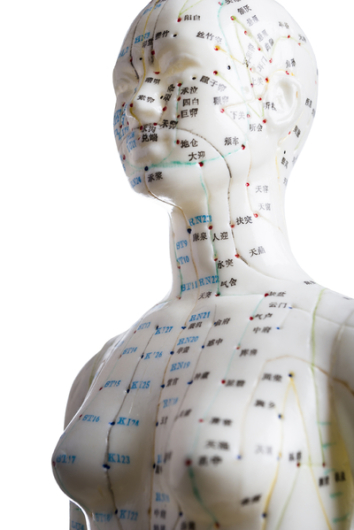The Influence of Acupuncture Needle Manipulation on Connective Tissue
According to Traditional Chinese Medicine (TCM), the manipulation of the acupuncture needle once it is inserted into the acupuncture point is a very important component to the success of an acupuncture treatment. The needle is usually manipulated by twisting it back and forth and/or lifted up and down.
Needle manipulation achieves the purpose of obtaining "de qi", which is a localized heavy sensation or a tingling sensation that travels from the acupuncture point to another location in the body.This has the effect of balancing the circulation of qi and blood in the body.
Acupuncture needle manipulation techniques are able to:
-
Reduce excess qi
-
Strengthen weak qi
-
Clear accumulation of heat (inflammation)
-
and other functions
Recently, research has determined that bidirectional rotation of the acupuncture needle causes remodeling of connective tissue by effecting the
fibroblasts. Fibroblasts are a type of cell that synthesizes the extracellular matrix (provides structural supports and anchors cells) and collagen. Fibroblasts are also critical to healing
from tissue damage.
Fibroblasts are the most common cells of connective tissue. Connective tissue is a component of tendons, cartilage, bone, blood, adipose tissue and the lymphatic tissue.
Needle manipulation and its ability to remodel connective tissue by affecting the fibroblasts in subcutaneous connect tissue is an explanation of how acupuncture is able to stimulate the healing of
wounds, and injuries to tendons, cartilage, myofascia and bones.
References
1. Langevin HM, Bouffard NA, Churchill et al. Connective tissue fibroblast response to Acupuncture: dose dependent of bi-directional needle rotation. Journal of Alternative and Complementary Medicine
2007; 13:355-360.

